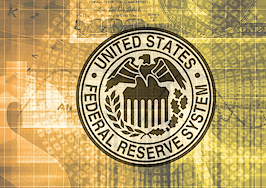- Conditions in Europe, Japan and China and at their central banks have been the primary force holding down U.S. interest rates.
- Overseas conditions will hold back the Fed. The widening dollar-to-others spread is already distorting economies.
- The single most dangerous thing in any year are national leaderships hungry for land and power and who think their adversaries will not resist, or can be fooled.
- Markets have had the great luxury of 70 years’ stability brought by strong alliances and cautious behavior, even among adversaries.
On the last business day of 2016, I couldn’t help looking toward the strangest new year ahead of any in memory, every day marking some new and lurching change in outlook.
So, instead of an attempt to forecast outcomes, assess the priorities of forces acting on markets.
Looking outward
First, despite the arrival of the most unusual administration in U.S. history, look outward. Conditions in Europe, Japan and China and at their central banks have been the primary force holding down U.S. interest rates. And holding down inflation, and holding the Fed at bay. Thanks, guys!
There is no change for the better in any of those economies. In an offhand way, Xi said last week that it’s okay with him if China’s growth slows below its mythic 6.5 percent, if slower would be more stable.
China is stuck in stability whack-a-mole, one top-down effort to control everything after another has failed. The best measure of its instability is the frantic effort of citizens to get their money out of China — not just because the yuan will fall in value, but just to get the hell out.
Europe’s sad adventure with the euro grinds on, economic damage producing political fragmentation. Italy’s banks are next up, needing a huge bailout from a government which does not exist but is hopelessly in debt.
The guess is $50 billion. What’s another 2.5 percent of GDP (gross domestic product) if you’re already in hock 130 percent of GDP? This: that $50 billion guesstimate assumes net cost after wiping out stockholders and all institutional bondholders. The hole may be a lot deeper.
Here in the U.S., we’re at full employment, inflation still below 2 percent — but not far. Guesses at Fed hikes next year center on three — from 0.75 percent up to 1.50 percent cost of money, maybe bulldozing mortgages close to 5 percent.
Hunch: overseas conditions will hold back the Fed. The widening dollar-to-others spread is already distorting economies.
Looking inward
All other trails lead to Trump. He will get some things done, base-pleasing and possibly pleasing to others. Executive order things, if only reversing orders given by Prior Occupant. Un-do some regulations. Hammer immigration.
There will be a great deal of wild swinging. Some punches will connect; most will miss but alarm the audience.
The valid soul of conservatism is to study how we got to where we are before attempting revolution. The Right has no replacement for Obamacare except a voucher system — we’ll spend less on health care if we have less to spend.
Tax cuts for the rich funded by skinning Medicare have no future. Congress does not look game for a new round of “stimulus will produce its own revenue.”
Markets usually don’t care about foreign policy until shooting starts. Then they care.
The Education Of Donald Trump is not likely to do much domestic harm. Foreign policy?
To Russian hacking of a U.S. election, Trump says, “On to bigger and better things.”
Yes, he’s defensive about legitimacy, and Obama’s shift from Clark Kent is odd, but there is nothing bigger than this KGB regime’s desire to restore the Russian empire. Not one Congressperson has joined Trump’s opposition to sanctions, new or old.
The best way to measure extremism is relative to something else. Absolute truth is scarce.
Trump seems not to know (certainly not to care) that his active embrace of the Israeli right is far out of the mainstream of policy of all prior administrations. The 1956 war was a grab of the Sinai and Suez by Israel, France and Britain, which a disgusted Ike immediately force-reversed.
Thirty years later, James Baker was the ultra-dignified Secretary of State for both Reagan and Daddy Bush. In 1992, exhausted by 10 years of trying to end West Bank settlements, Baker said to prime minister Shamir: ”Here’s my phone number — when you get serious about making peace, give me a call.”
The single most dangerous thing in any year are national leaderships hungry for land and power and who think their adversaries will not resist, or can be fooled.
I ain’t sayin’ something bad is going to happen overseas. But markets have had the great luxury of 70 years’ stability brought by strong alliances and cautious behavior, even among adversaries.
Markets now will have to pay attention. And they will.
The U.S. 10-year T-note in the last five years.
The flicker of improvement in the last week is important. It’s hunchwork, but probability favors stability or even a rally — if only because our yields are so wildly higher than everyone else’s, and until we can separate Trump economic fact from fiction.
The U.S. 2-year T-note in the last year. Markets have built in the Fed’s next hike, but not the one after that.
I remain a complete skeptic about accelerating or inflationary U.S. growth.
2s-to-10s. The spread between these two notes is the one, sure-fire predictor of recession. Here is the chart of spread back to 1975.
Whenever the yield on 2s rises above 10s, or 10s rally below 2s, recession follows. Every time, no false signals. The spread opened a bit after the election, 10s rising in yield faster than 2s, but has been narrowing overall for four years.
The Economic Cycle Research Institute (ECRI) has had only one false-recession call in its 51-year history. False calls of booms have been common. Right now the ECRI is in hysterics on the upside, taken by the huge post-election stock market rally. We’ll see about that.
The Atlanta Fed’s tracker is from December 22, out of date. We’ll get a new one this week, and a raft of December data.
Pinky bet: The high confidence found in surveys of consumers and small business is a Trumpista artifact, which will not be confirmed by economic data. For everyone elated by the election, there is another person alarmed into caution. A push.
We’ll see the true underlying trends in this week’s data.
Lou Barnes is a mortgage broker based in Boulder, Colorado. He can be reached at lbarnes@pmglending.com.













